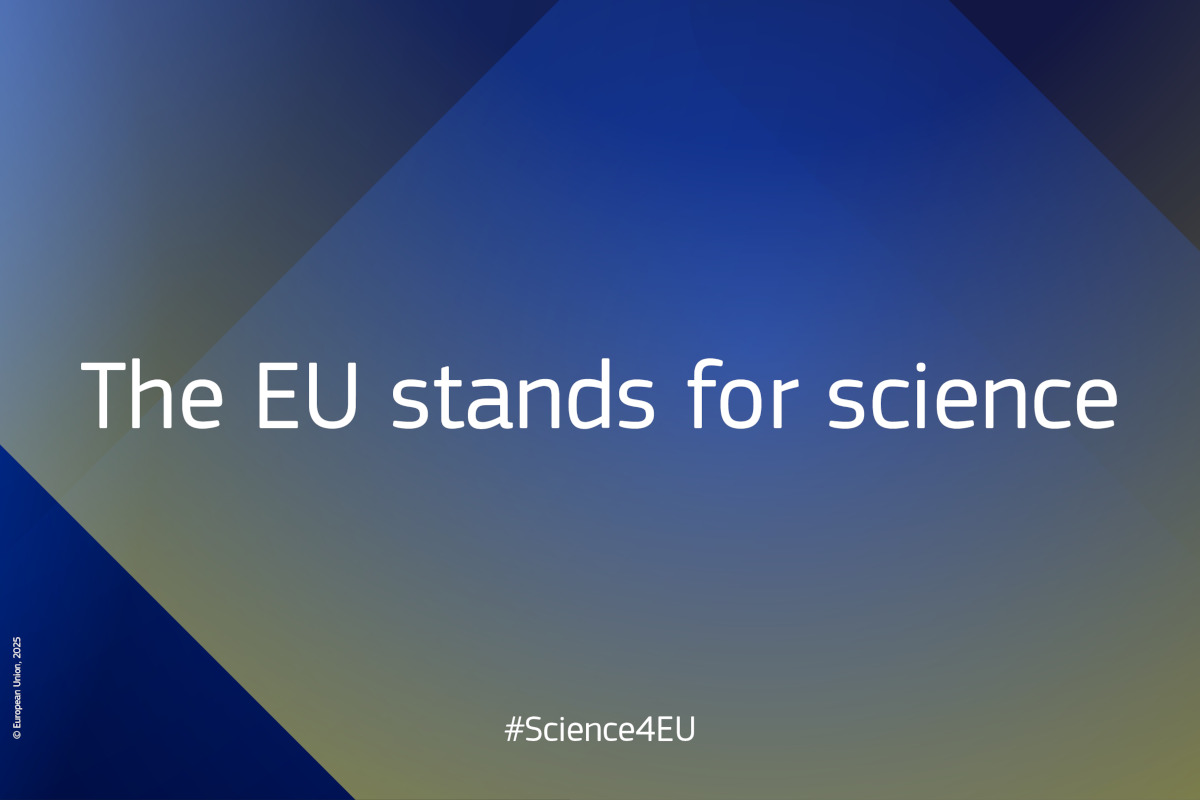EU-funded researchers and experts are joining forces across borders to combat child sexual abuse, exploitation and human trafficking using AI-powered solutions.
Special series

Science4EU
The Science4EU campaign shows how the EU stands for science. It shines a spotlight on the scientists, researchers, and innovators working with EU support to improve our lives and shape a better future for everyone.
Do you also stand for science?
Podcast
Media AV Portal Audio
More stories

EU-funded researchers are shedding light on how digital media use is impacting teenagers and what parents, teachers and policymakers can do about it.
Most popular
-
1By Michaela Nesvarova
-
2
-
3By Michaela Nesvarova
-
4By Sofia Sanchez Manzanaro
-
5
Top videos
Turning local know-how into European solutions for smarter bio-based farming
25 July 2025
Fighting fire with innovation: a pan-European push to tackle extreme wildfires
23 July 2025
Past articles
Just after a race, most amateur marathon runners have increased levels of proteins linked to heart damage, Dutch researchers have found.
You’ve heard of Google, but you probably haven’t heard of Qwant…. yet. This French search engine, based around the concept of privacy, is just one of a number of companies to receive growth finance from the EU to promote innovation and help European companies compete with their American rivals.
Wind intensity can be forecast months ahead thanks to a new tool that uses sophisticated climate simulations to tell energy companies and government planners how strongly the wind is likely to blow.
Top-drawer sports teams that bring together players from all over the world serve as a beacon for an equal-opportunities society, researchers say.
Each year a new wave of computers, smartphones and accessories swarm the market with smaller components made from increasingly complex materials. While this technological evolution may be exciting for consumers, the trend towards obsolescence is impeding our progress towards a zero-waste society, according to researchers working in the area.
The naked mole-rat, a cold-blooded burrowing mammal that lives in the East African desert, is hiding secrets in its genes that could provide cures for strokes, delay the ageing process, and even increase our lifespan.
At this year’s Olympics, athletes will compete in tailor-made trainers designed to help them perform better. With a research programme named Sports Infinity, consumers can now design their own sport shoe, one that never has to be thrown away, that is, according to Glenn Bennett, Executive Board Member of adidas AG.
If you are wearing a gold ring on your finger, it may well have started life in the collision of two neutron stars - small celestial objects that are formed when massive stars collapse.
Eye-tracking systems will be available in cars from next year thanks to an EU initiative to back loans to Europe’s high-tech small- and medium-sized enterprises (SMEs).
The ever-increasing cost of holding large sporting events like the Olympic Games or the World Cup means host cities are looking for a lasting legacy in their towns as well. But experience shows that this doesn’t always work out as planned.
In August, we look at the social impact of mega events such as the Olympic Games, the links between sports and society, the benefits of high-intensity interval training, and how, one day, part of your football boots could have scored a winning goal at the World Cup, if shoemaker adidas gets its way.
Enhancing trust in science through public engagement and open, transparent research is vital if we are to avoid descending into a 'post-factual society', according to Carlos Moedas, the European Commissioner for Research, Innovation and Science.
The EU has adjusted its 2017 research funding plans to help bring science to bear on Europe's migration problem, enhance open science and increase innovation.
People are more likely to have a mobile phone than access to a proper toilet, yet for many, power cuts and intermittent supply mean they’re often out of reach – until now.
The promise of personalised medicine is not only that it could increase cure rates, but also that it could save people from undergoing treatment when there is no hope of it working, according to Dr Daniela Thorwarth from the University of Tübingen, Germany.
As signs of intensifying climate change are seen in Europe, researchers are looking into how life will change for people who live in the Arctic, and helping to count the global economic cost of the ever-increasing loss of sea ice.
Being laid off can be one of life’s most emotionally traumatic experiences, but new studies show that, for some, losing work during an economic crisis can lead to lasting physical consequences.
Biological alternatives to oil-based varnish are turning wood into one of the most sustainable building materials available.
A new breed of emergency shelter with built-in solar power, a backpack that gives access to mobile charging and a bag that converts manure into cooking gas are among the new generation of emergency response kits that could help people survive in the wake of a disaster that knocks out their energy supply.
The EU should continue to catch up with the US and Japan in terms of innovation performance over the next couple of years, according to a new forward-looking analysis produced as part of its yearly innovation report.



























